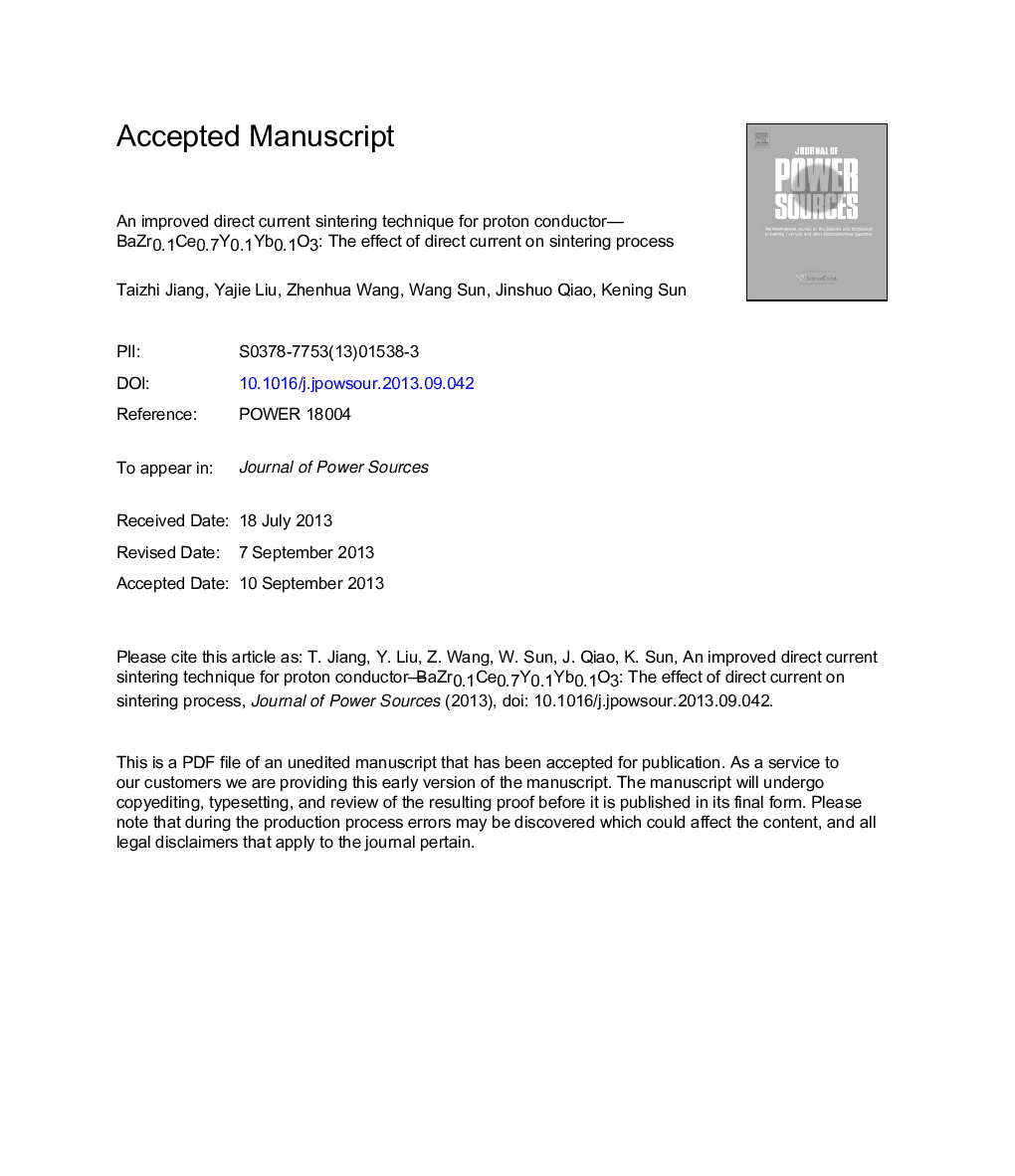| Article ID | Journal | Published Year | Pages | File Type |
|---|---|---|---|---|
| 7738018 | Journal of Power Sources | 2014 | 28 Pages |
Abstract
BaZr0.1Ce0.7Y0.1Yb0.1O3 (BZCYYb), a promising proton conductor of poor sinterability used in Solid Oxide Fuel Cells (SOFCs), has been densified in one hour at 850 °C by applying direct current sintering technique (DC-sintering). Under a constant electrical field, the current density through the specimen of BZCYYb rises rapidly when the temperature increases to a certain value. In DC-sintering process, we restrict the current density when the sharp increase occurs. By limiting current density to different values for one hour, we find that current density is the most important factor in DC-sintering process. The conductivity and the grain size of BZCYYb electrolyte increase significantly with the enhanced current density, while the different initial applied electrical fields have negligible effect. The stable stage of DC-sintering process can be explained by Joule heating. Corresponding real temperature of specimens is estimated by applying black body radiation theory.
Keywords
Related Topics
Physical Sciences and Engineering
Chemistry
Electrochemistry
Authors
Taizhi Jiang, Yajie Liu, Zhenhua Wang, Wang Sun, Jinshuo Qiao, Kening Sun,
